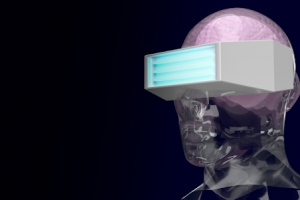Why Digital Identity Will be Crucial In The Metaverse

The Metaverse has recently been hailed as the future of the internet by both major corporate proponents as well as the developers and users of decentralized technologies.
Frequently described as an open, interconnected landscape of products, tools, platforms, and protocols. The Metaverse will eventually be home to all the brands and services we interact with on a day-to-day basis.
As well as myriad new ones that will leverage the latest technology to deliver an entirely new range of experiences.
But in order to navigate this new landscape, users are going to need a next-generation identity solution.
Unlike today, the boundaries between websites and experiences are likely to become blurred within the Metaverse as it becomes a passive and intuitive way to shop, play, socialize, and work.
Blockchain technology has frequently been touted as a groundbreaking technology thanks to its numerous applications — one of which is the potential for self-sovereign identity solutions.
To move around the Metaverse and interact with potentially dozens or hundreds of services regularly, users will need a way to not only securely verify their identity and credentials but also ensure that their personal details cannot be misused or sold.
How do overcome this ?
This is where platforms like SelfKey are set to shine. As a non-custodial identity solution, SelfKey lets users store and manage their digital identities from their own computers.
By creating a SelfKey identity and having their documents attested by trusted authorities, users can then access SelfKey-enabled platforms and have their identity verified while sharing only the absolute minimum amount of information.
Image courtesy: SelfKey
In a world where data mining is an incredibly lucrative revenue model and an increasing number of firms now looking to harvest as much data as possible from their users.
Solutions like SelfKey will provide the infrastructure for users to take back control of their identity while still giving service providers only the details necessary to verify identities and credentials — and only when absolutely necessary.
This will become a fundamental technology for the Metaverse, where users may unknowingly leak their personal data across a huge number of interconnected applications.
But identities won’t be the only thing that will need to be protected in the Metaverse. Just like the internet of today, practically everything created in the Metaverse could be subject to copying, cloning, falsification, and more.
When everything is interconnected and openly shared across a vast digital medium, how can individuals and businesses tell if the person, brand, or service they are interacting with is authentic?
Platforms like Blockademia are working to tackle this problem once and for all by combining the immutability of Cardano with a modular document issuance and authentication solution to help firms and individuals permanently and securely store probably authentic diplomas, documents, source code, or practically anything else on the blockchain.
This provides a way to provably authenticate almost anything — eliminating counterfeiting, plagiarism, and document fraud in the Metaverse.
With some of the worst-known data mining offenders, including Meta (previously Facebook) and Twitter making a major push toward the development of the Metaverse, users will need to take a proactive and cautious approach to the data they share.
Digital identity solutions, whether blockchain-based or otherwise, will sit at the interface between users and the Metaverse, helping individuals and businesses prove their credentials in a way that doesn’t compromise their privacy, safety, and user experience.
Source: Read Full Article
